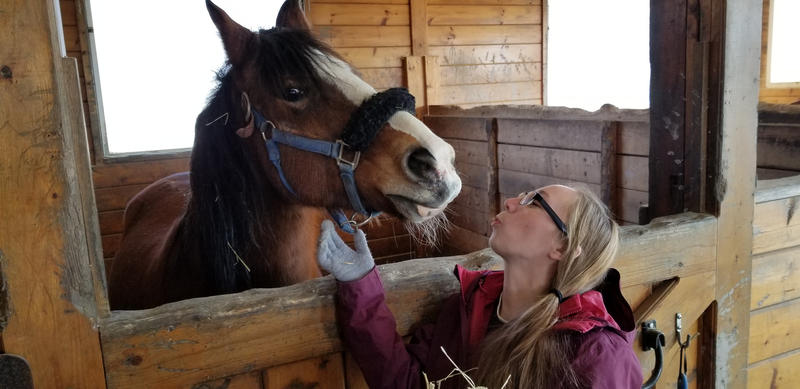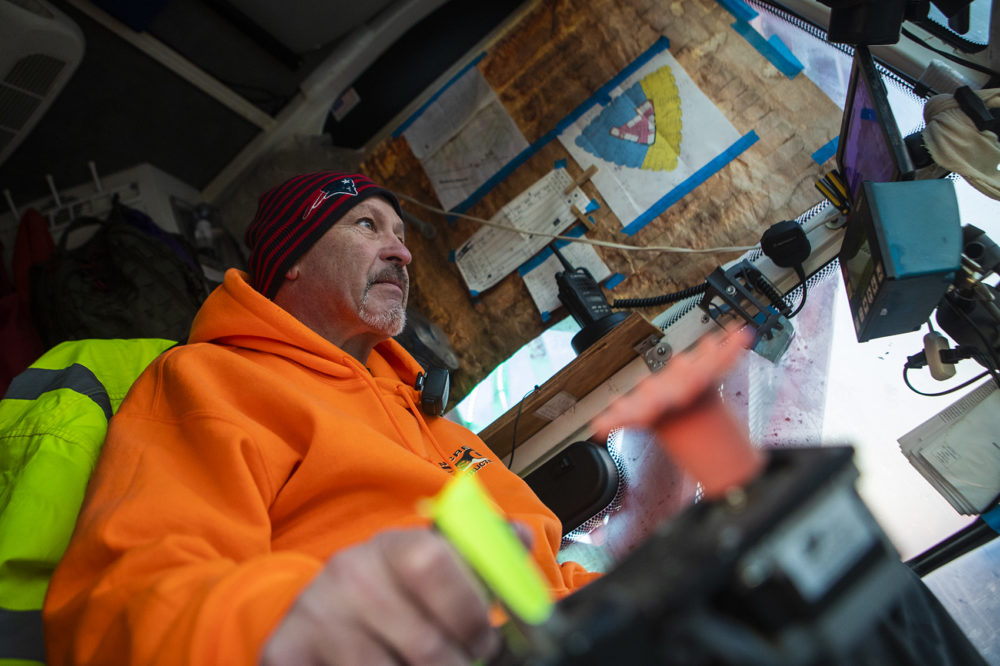Episode 129: Horses, Inmates, Recover Together; States Battle Over Minimum Wage

This week we take a look at minimum wages around our region.
Plus, why renewable energy credits are dropping in value in Vermont. Also, we’ll look at how states around New England could make the switch to 100% renewable energy.
We go to the region’s largest horse rescue that is saving the lives of both horses and humans, and we visit a crane sitting high above Boston.
It’s NEXT.
Minimum Wages around New England Change in 2019
Graphic courtesy of New England Public Radio
The fight for a minimum wage that’s closer to a living wage has been playing out for decades. But we’re going to dig into the issue this week as it’s increasingly become the topic of campaign speeches and statehouse debates across the region.
This latest battle started in February 2014, in the White House, with a speech by President Barack Obama. By the time of Obama’s speech, the federal minimum wage had gotten up to only $7.25. Obama used that speech to announce an executive order requiring federal contractors to pay employees at least $10.10 an hour. And he used it to push Congress to act.
But Congress didn’t do anything. And the federal minimum has stayed at $7.25 ever since. Four New England states: Connecticut, Vermont, Massachusetts, and Rhode Island – did listen, though, and acted almost immediately with legislation. A few years later, Maine voters approved a plan to raise the state’s minimum. That left New Hampshire as the only New England state that still follows the federal rate.
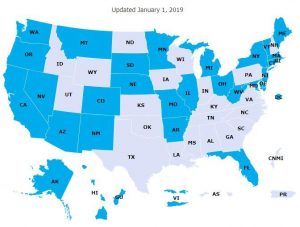
Minimum wage laws in the U.S. Blue areas have higher minimum wage than the federal minimum wage, set right now at $7.25. Courtesy of the U.S. Department of Labor
The start of 2019 meant more workers around the region saw automatic increases that were built into legislation – and it also meant new governors, like Ned Lamont in Connecticut. In his state of the state address, he addressed the fact that Connecticut’s been at $10.10 for a few years now, and he hopes to change that by moving the state’s minimum up to $15 an hour.
Massachusetts is already moving to a $15 an hour wage over the next few years. Will neighboring Connecticut join them? We asked Mark Pazniokas, Capitol Bureau Chief for the Connecticut Mirror.
Connecticut might not be the only state whose legislature will look at raising the minimum wage in 2019. Vermont’s minimum wage is already tied to the consumer price index, which means there are yearly incremental changes, and currently stands at $10.78. Bills to raise the wage to $15 an hour have been vetoed by the state’s republican governor, Phil Scott. But this year, the legislature has a strong democratic majority and a chance to override any veto. Bob Kinzel, Senior Political Reporter for VPR joins us to discuss what’s next for Vermont’s minimum wage.
In New Hampshire, lawmakers have also introduced a bill that would raise the minimum to $9.50.
For more on what’s going on in New Hampshire, we recommend listening to a recent episode of The Exchange, “Another Round for New Hampshire’s Minimum Wage Debate.”
We speak with James Myall, Policy Analyst with the Maine Center for Economic Policy (MECEP), to learn more about the economic effects of a rise in a state’s minimum wage. Maine voters approved an $11.00 wage for this year, that will increase in 2020 to $12.00. Myall wrote a report for MECEP stating that increasing the minimum wage had a big effect on the number of kids in poverty.
Citizenship Question on 2020 Census
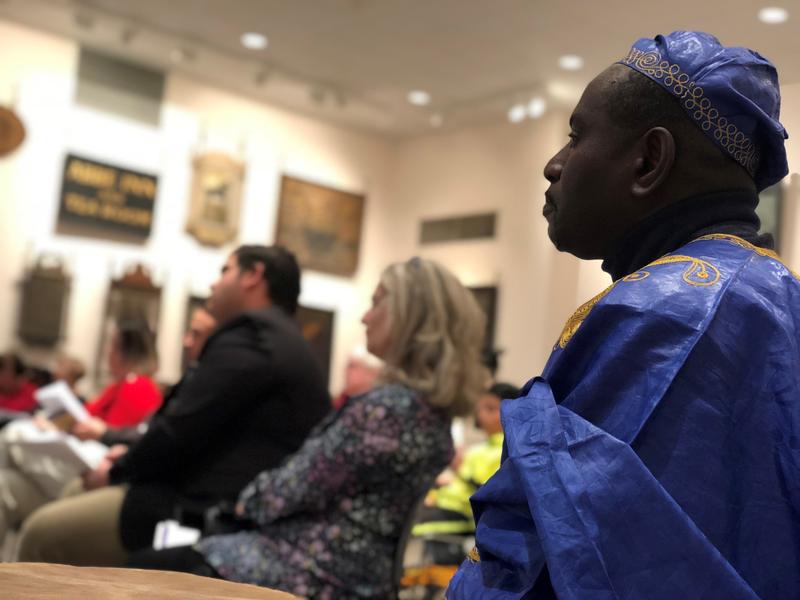
Hartford resident Georges Annan-Kingsley, right, is an artist and political refugee from the Ivory Coast. Photo by Vanessa De La Torre for Connecticut Public Radio
A federal judge has ruled that the Trump administration cannot include a question about an individual’s citizenship on the 2020 Census.
In April we spoke with Sam Adler-Bell, a senior policy associate at the Century Foundation. He had written an article for The Intercept about the dress rehearsal for the 2020 Census that took place in Providence County, Rhode Island. He described to us the fear that many immigrant communities are currently living in, and how this affects accurate counts on the census, as well as why an undercount matters.
The federal judge’s ruled this week that the administration can’t include the citizenship question on the 2020 census. That is just the start of the legal debate over this issue with the potential of it reaching the Supreme Court.
Listen to the full interview with Sam Adler-Bell.
Renewable Energy Credits Drop in Value
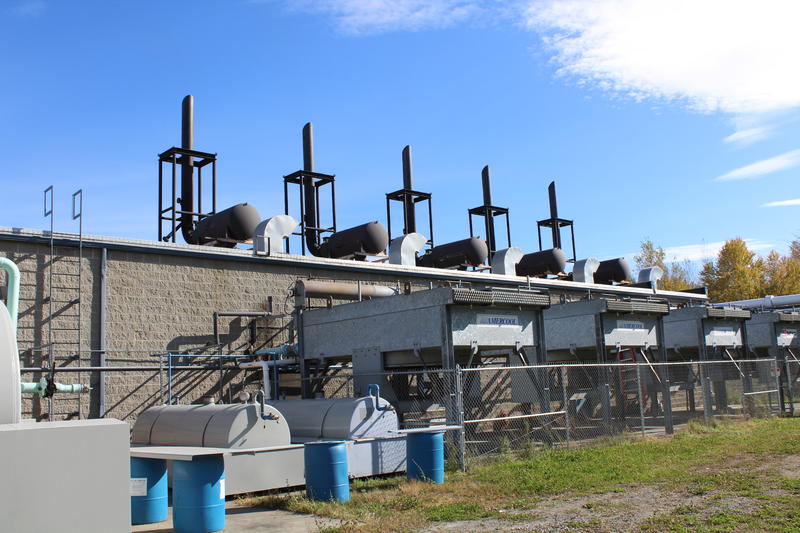
These generators produce electricity by burning landfill gas in Coventry. The Washington Electric Co-op has sold credits for that energy to other utilities, but the price for the credits has dropped sharply. Photo courtesy of the Washington Electric Co-op
A recent boom in renewable energy around New England is unquestionably good for the region’s greenhouse gas footprint. But, it’s meant a shift for early adopters who bank on the value of “renewable energy credits.” This market has been a bonanza for some utilities, but now with more renewables these credits are dropping in value.
VPR’s John Dillon brings us the story of a small Vermont utility caught in this shift, and its led to higher rates for customers.
Going Fully Renewable
In some parts of New England, this renewable energy boom is going even further. Towns are committing to transition to 100 percent renewable energy. Burlington, Vermont was the first city in the United States to get 100 percent of its energy from renewable sources. Others are following suit, including Hanover, New Hampshire. And there’s a useful tool for places looking to make the transition. “The Solutions Project” has a “vision” for each state in the country for what a switch to 100 percent renewables would look like.
Stanford Professor Mark Jacobson is a co-founder of the Solutions Project. We asked him to join us as part of our series “The Big Switch,” to discuss what it takes for towns, cities, and states to make the transition.
A Town in New Hampshire Takes a Stand on Energy
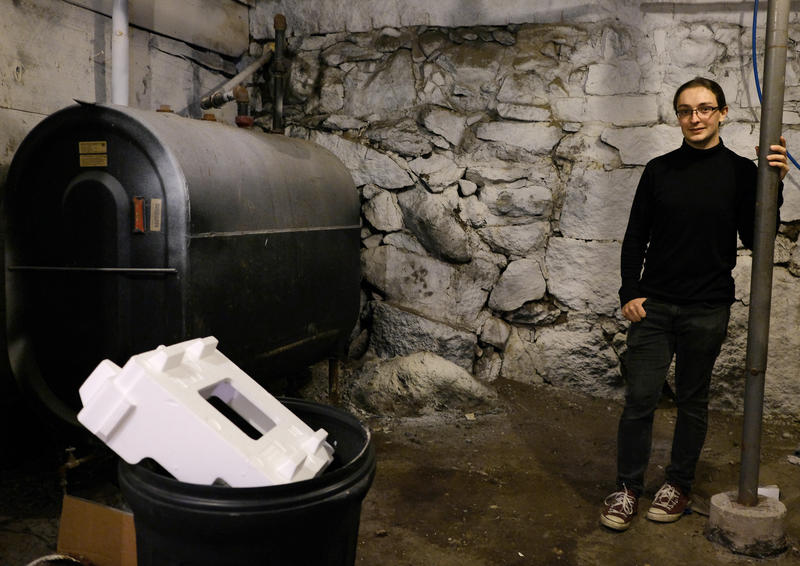
Devin Wilkie in the basement of his oil-heated home in Lebanon. Wilkie doesn’t have a lot of money to spend on a more efficient heating system, he said, but he’s making affordable improvements to lower his carbon footprint. Photo by Britta Greene for NHPR
As we’ve heard, there are some challenges to switching to 100 percent renewable energy. Now let’s see what that transition looks like in action.
NHPR’s Britta Greene takes us to Lebanon, New Hampshire, a town that’s working to reduce energy consumption and increase their use of renewables.
Horse Rescue Saves Horses and Humans
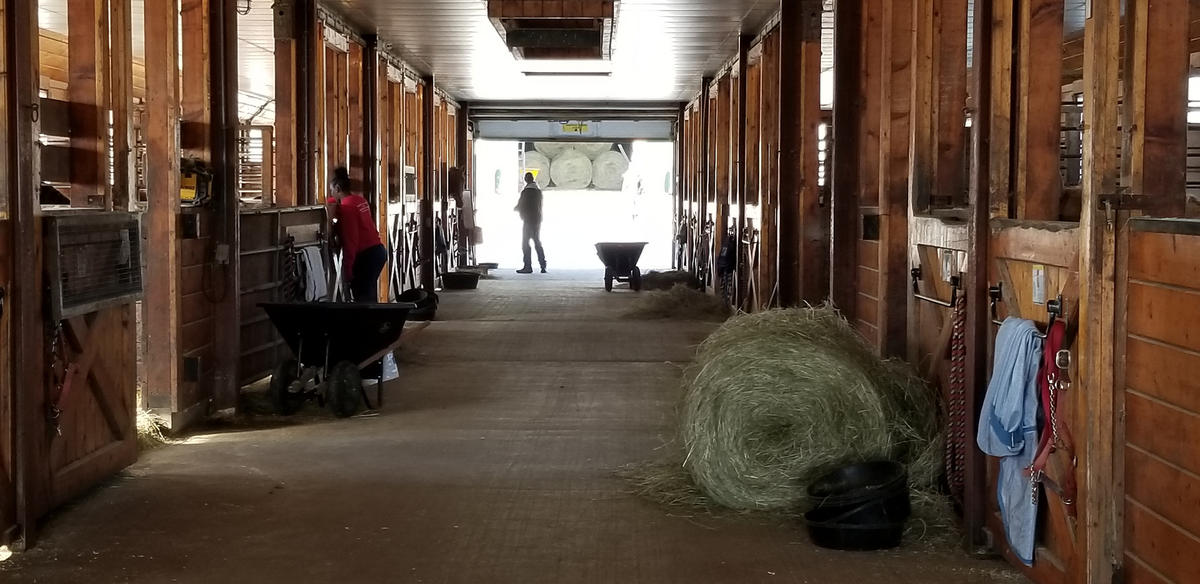
A barn at the Maine State Society for the Protection of Animals in Windham. Photo by Susan Sharon for Maine Public Radio
New England’s largest horse rescue in Windham, Maine began offering sanctuary to carriage horses back in 1872. Since then, the Maine State Society for the Protection of Animals has been working hard to rehabilitate as many horses possible. As Susan Sharon of Maine Public Radio reports, the non-profit has been getting help from a devoted group of volunteers: inmates from the women’s prison across the street.
Looking at Boston from Above
- Thew crane’s mast extends all the way up the side of One Dalton Street. Photo by Jesse Costa for WBUR
- Creane operator Brett St. Germain manuvers the crane around to pick up some materials on the roof of One Dalton Street. Photo by Jesse Costa for WBUR
- A rare view, looking down at the Prudential Center, as Brett St.Germain operates the crane which sits above One Dalton Street. Photo by Jesse Costa for WBUR
- Contractors work on the top of One Dalton Street, 742 feet above Huntington Ave. (Jesse Costa/WBUR)
- The early morning sun illuminates the Citgo Sign and the tops of other buildings around Kenmore Square. Photo by Jesse Costa for WBUR
At the height of the Boston skyline is a jobsite, where workers are nearing completion on the third tallest building in the city. Standing even higher than the building is a crane, whose operator is responsible for lifting materials to the building’s 61 floors. WBUR’s Simón Rios journeyed to this highest vista in the city of Boston to introduce us to the crane operator, and his perch.
Photo at the top of the page: Inmate Carrisa Butkewitcz cares for Tavish, an older horse at the Maine State Society for the Protection of Animals in Windham that she describes as “calm and sweet.” Photo by Susan Sharon for Maine Public
About NEXT
NEXT is produced at Connecticut Public Radio
Host: John Dankosky
Producer: Lily Tyson
Digital Producer: Carlos Mejia
Senior Director: Catie Talarski
Contributors to this episode: Bob Kinzel, John Dillon, Britta Greene, Susan Sharon, Simón Rios
Music: Todd Merrell, “New England” by Goodnight Blue Moon, “A Hard Day’s Night” by The Beatles, “Skinny Love” by Bon Iver, “Don’t Leave Me (Ne Me Quitte Pas)” by Regina Spektor, “Get By” by West End Blend
—
New to NEXT? You can find every episode or one you missed within our archives.
We need your feedback! Send critiques, suggestions, questions, and ideas to next@ctpublic.org. Help us spread the word! If you like what you hear, rate and review us on iTunes.

